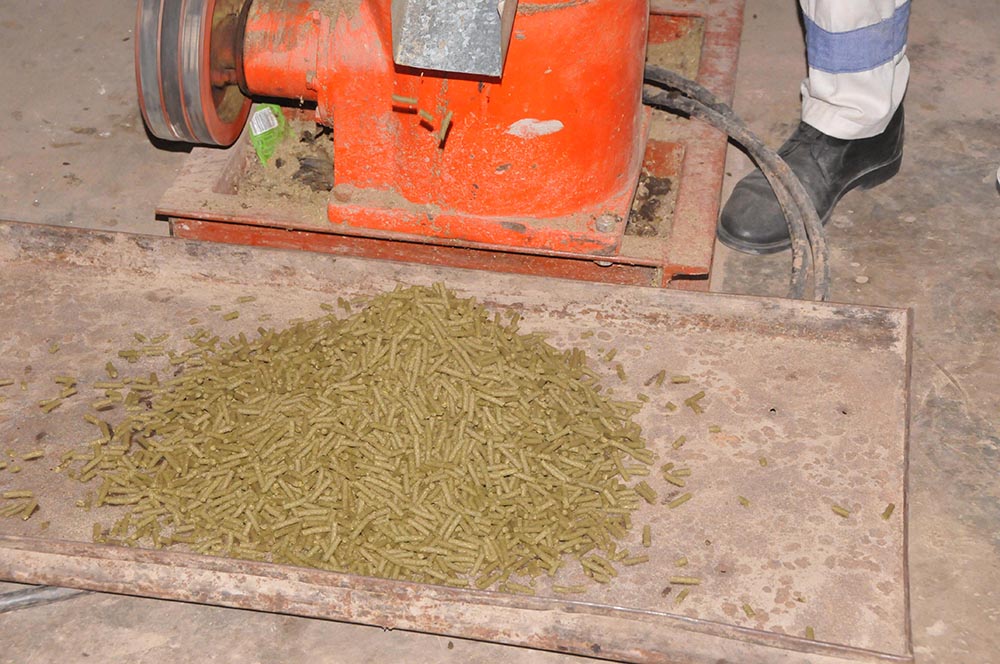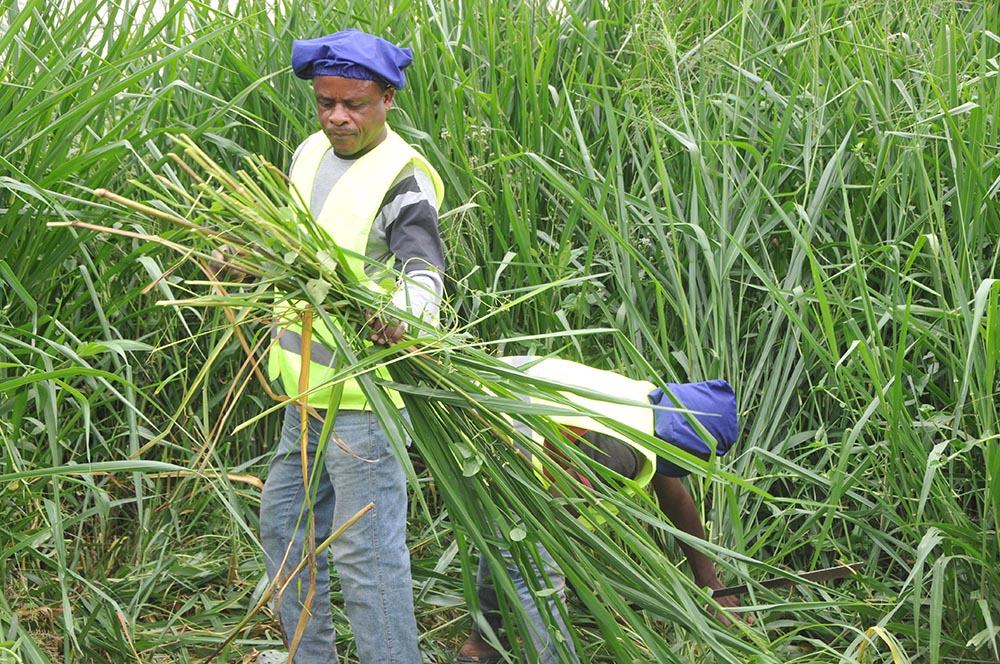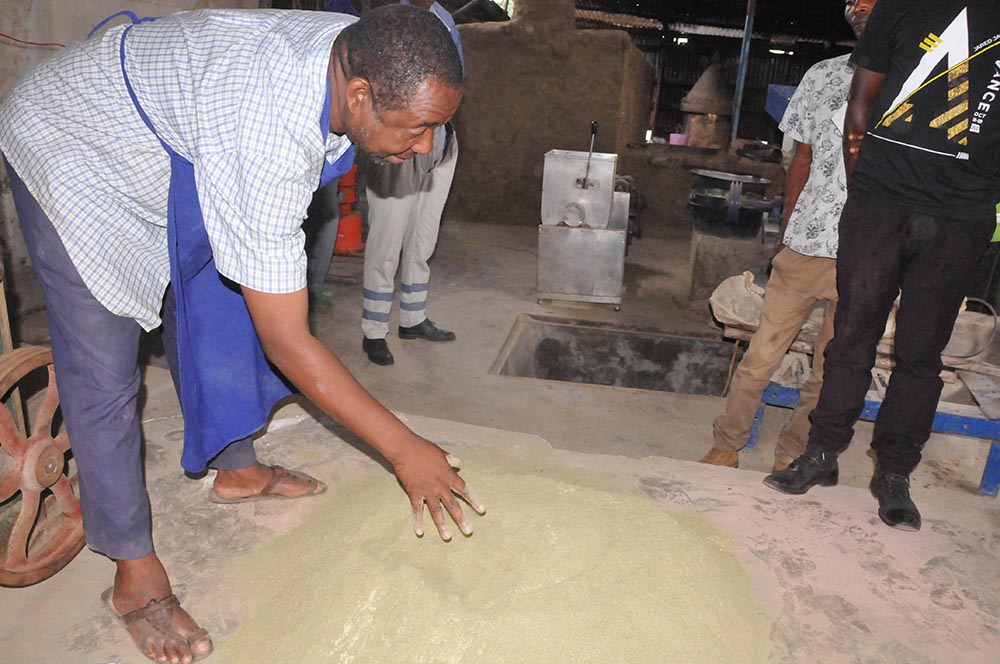By Abdulkarim Ssengendo
Livestock farmers in Bushenyi district and other parts of the country have been urged to go scientific and use supplementary feeds like perrets/calf pencil to their animals specifically calves if they want to produce better milk yielding cows.
The call was sounded by Justus Sunday, an agriculture engineer and animal nutritionist and director of Jumol Agro-Tech Services Ltd based in Bushenyi.
Sunday warned that farmers will be left out if they continue failing to embrace science yet they are living in a scientific world.
He encouraged farmers to make better use of research academicians in universities who are equipped with good knowledge to solve farmers’ problems.
Sunday made the comments in an interview with Vision Group farming journalists who visited his perrets feeds making factory in Omukakyenkye cell, Kitwe ward in Rwentuuha town council in Bushenyi district.
He told journalists that what he is doing is hinged on research and laboratories of Makerere University and hailed the brilliant men and women who are busy trying to find solutions to solve problems faced by farmers.
“People need to know that learning and science has much to do with poverty alleviation,” he added.
“People have pastures and they think they offer enough to a calf for it to become a milker yet these animals called high breeds are science in making. Science is by formula not by gamble, it has to be a formula applied and known for it to give you what you are looking for,” he added.

Sunday together with other researchers developed the idea of making calf feeds after discovering that poor feeding is the cause of producing poor milk yielding cows.
“Our research was hinged on challenge of farmers having good breeds of cows, with all sorts of best breeds but they get less milk from Friesian and Jersey cows compared to Kenya and South Africa. Yet we have the best pastures, best climate and best water sources,” Sunday said.
He explained that the formulae of developing into feeding calves with perrets should begin in the first 10 days up to 3 months, on the 3-month end that when the mammary system is fully developed and a farmer gets the best calf.
“In African setting, eating one food is not called eating, actually the Banyankore call it ‘Kunyaata’. If is a child on one type of food you will never attain the best. It is a similar thing with these calves, when you have the best calf and you feed it entirely on one type of pasture this thing doesn’t develop the mammary system. Because the mammary structures are formed by a balanced diet,” he added.
He said perret feeds are also good for rabbits and that they will later extend to chicken and other domestic birds but currently the principal focus was on calf feeds.

How they make calf feeds
“We get the best pastures, we mix them in legumes, dry them in a drier fully covered with visquine sun selectors, put it in a hummer miller and come up with a powder which is a mixture in correct ratios of pastures and legumes. Then that mixture is mixed with other energy giving foods like maize grain, soya, we add slat for appetising and mineral source. In the second mixing, we add avocado and then potatoes vines extract and cassava oils for binding and energy giving,” Sunday explained.
He said all these essentials were worked on in collaboration with Makerere University where all these raw materials were tested to come up with the correct formula to meet the interest of the farmers.
It is affordable
Sunday said at the moment, the factory price is sh3,000 per kilo.
He assured farmers this is a product they can give to their cows and get the best out of them.
“If it was to be rabbits one can get the correct weight of it. You can even help it to breastfeed the young ones better,” he added.
Sunday said a cow can eat a quarter a kilogramme per day or a kilo in four days because the calorific value in it is worth a basin of pasture. Then you supplement with other pastures.






